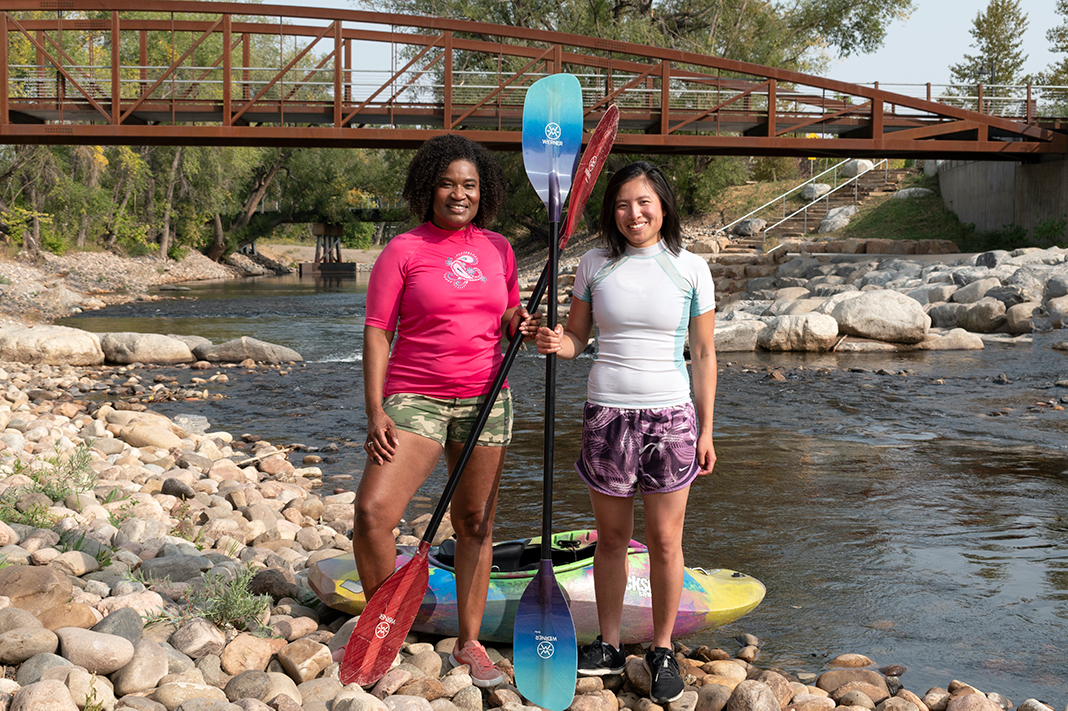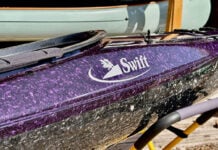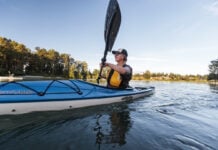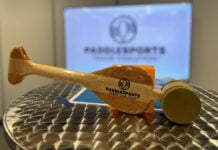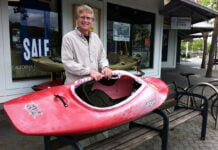Two American women are aiming to grow the love of paddling with an event series focused on getting Black, Indigenous and people of color (BIPOC) on the water.
Diversify Whitewater’s aim is to introduce more BIPOC to whitewater kayaking and rafting. The Fort Collins, Colorado-based organization’s founders are two women of color—Lily Durkee and Antoinette Lee Toscano. The duo has organized a series of summer events, including a community paddle and skills day, at no cost to participants to increase access to paddlesports and break down barriers.
“I was spurred by the post Immersion Research sent out in light of BLM [Black Lives Matter marches]. It said they were happy to support events and donate. I thought, that’s a nice message, but who is doing this work?” says Durkee, an Asian American Ph.D. student at Colorado State University. “I’ve been the only person of color on the water for most of my 15 years of boating. I thought, why can’t I do something myself?”
Durkee had just moved to Fort Collins, Colorado. She reached out to Toscano, a new friend who she met at a pool rolling session. “We formed Diversify Whitewater together. It’s been a short journey, but we’ve done a lot,” she adds.
The first Diversify Whitewater event took place in July. The paddle on the class II Cache la Poudre River near Fort Collins, Colorado, welcomed 37 BIPOC to whitewater rafting for the first time. Another 30 volunteers and paddlers helped orchestrate the day.
“Neither of us have seen that many BIPOC on or around the river,” says co-founder Antoinette Lee Toscano, an 11-year veteran of the U.S. Army, and former IT CEO turned freelance writer. “I think in the seven years I’ve been kayaking before this event, I had paddled with five other BIPOC.” Durkee echoes a similar sentiment.
Diversify Whitewater’s next event is a skills day being held on September 26 at Boyd Lake in Loveland, Colorado. It’ll host four one-hour sessions teaching kayak, SUP and raft skills to participants.
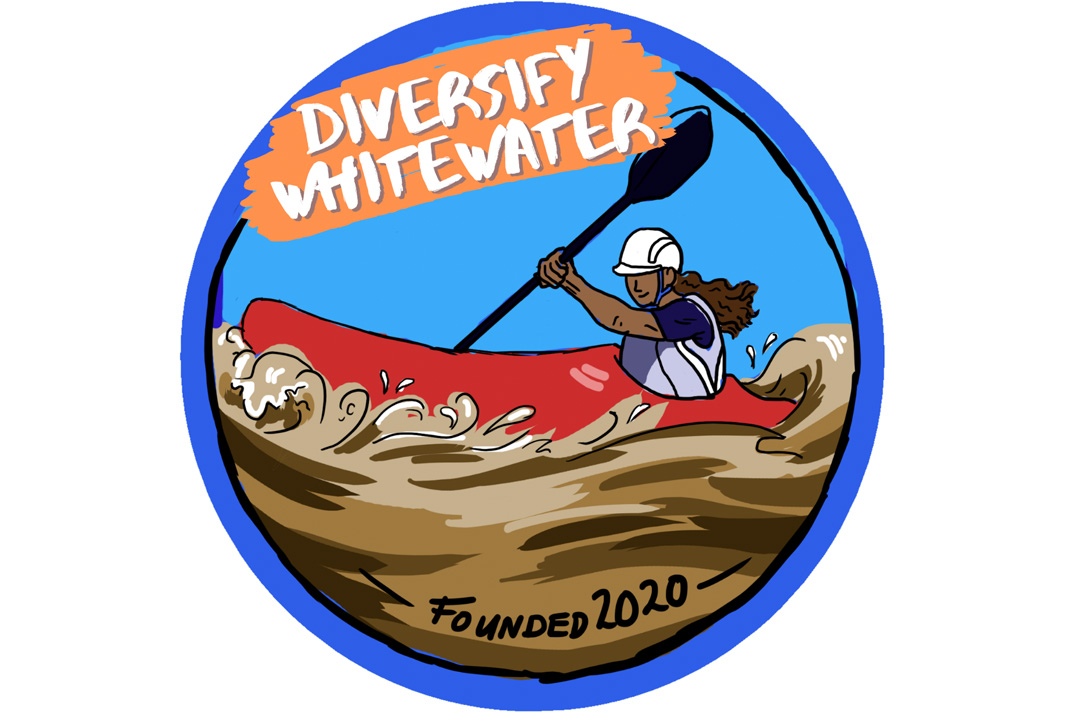
“Events are for BIPOC and allies,” says Toscano. “If you are a person of color who has a partner or friend who is not, they’re welcome. Our instructors are white and BIPOC. It’s very important to me to be an inclusive group, even though we target the BIPOC community.”
Response from the paddling community has been almost entirely positive. “I think the paddling community has been looking for an outlet to help,” says Durkee.
The industry has been supportive as well—Immersion Research has donated gear and Liquidlogic is offering participants discounts on kayaks at the next event. Diversify Whitewater also has the support of cityWILD, Rocky Mountain Adventures, American Whitewater, JAX outdoor gear, and the Great Falls Foundation.
While local paddlers can directly support Diversify Whitewater by volunteering at an event, what can out-of-area paddlers do to support diversity on their local rivers? “The best thing the wider community can do is support people of color on the water. Ask if they’d like to come out and try the sport and be welcoming at every opportunity. This is stepping out of the comfort zone for a lot of people. You may have to ask more than once,” says Toscano. “I think it’s worth it. Really, what all of us want is more cool people to boat with.”
“As a Black woman who participates in several adventure sports, I’ve never personally experienced a problem with feeling unwelcome or unsupported. But I didn’t learn about whitewater kayaking in my middle-class community growing up. I learned about it by seeing a poster in my physical therapist’s office for Team River Runner, a national organization that teaches paddlesports to veterans and their families at no cost,” Toscano adds. “I used kayaking as recreational therapy while recovering from a broken back and a mild TBI as a result of my military service. Paddling whitewater and adopting a holistic adventure sports lifestyle helped me to regain my health. I want more people of color to experience these benefits. And I feel the best way to do this is by working to break down barriers for entering the sport.”
Durkee started paddling at the age of nine and competed nationally in slalom in high school, including in the U.S. Nationals. “Kayaking was seen as a white thing. Being Asian and liking whitewater kayaking, hiking and camping, I was seen as weird… A lot of the perceptions kids have about race and outdoor recreation are a barrier to getting kids outside. I don’t know the whole solution, but if more kids are shown faces of people of color in paddlesports, it makes it normal for anyone to participate. And it will grow the paddling community.”
“The same is also a barrier for adults,” confirms Toscano. “What will change this perception is normalizing seeing people of color in the outdoors participating in adventure sports.”
Durkee points out that while some organizations are dedicated to centering the outdoor experience of people of color, including Outdoor Afro and Melanin Basecamp, none are focused explicitly on kayaking. “We’re focused specifically on diversity in paddlesports, and I think that’s important,” she says.
And it’s not just that creating an inclusive community is the right thing to do—more diversity is good for business, Toscano points out.
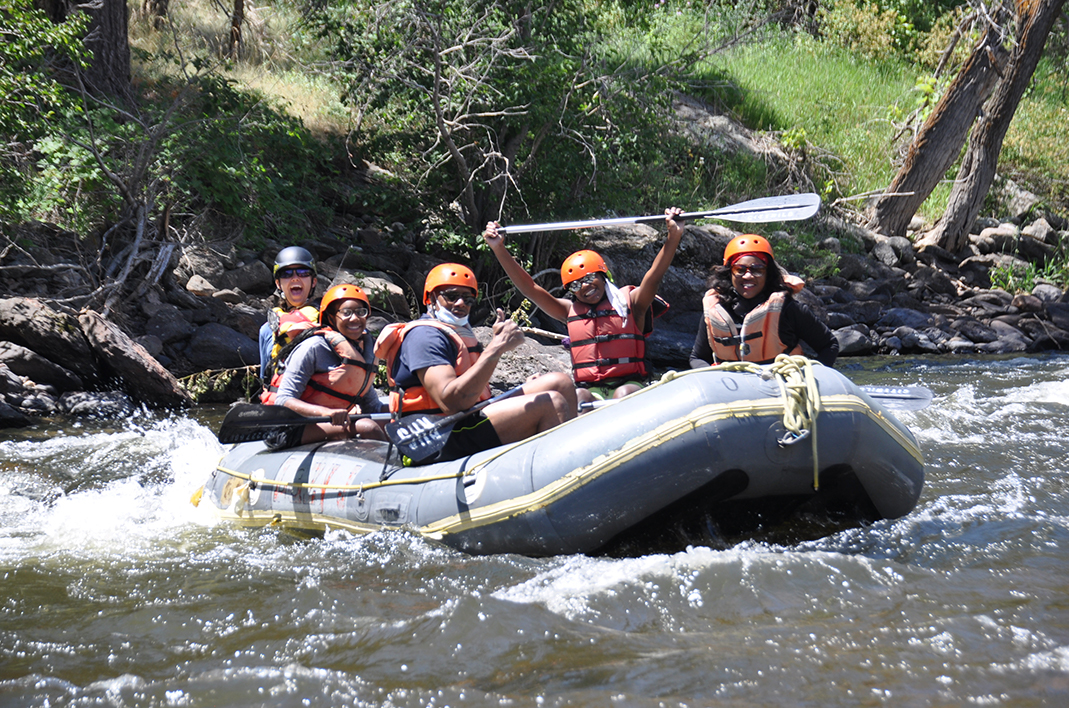
“Nearly half of all millennials in the U.S. are multicultural. They make up 47 percent of the U.S. GDP. And they wield a trillion dollars in buying power,” Toscano says. “If they are going to spend it on adventure sports products and services, the industry must do a better job of reaching this market segment.”
To do that, Toscano suggests the outdoor industry promote more people of color as brand ambassadors and sponsored athletes and advertise in magazines read by people of color, as well as learn more about the history around why outdoor adventuring is growing at a slower rate within BIPOC communities.
“Everyone can do something [to help],” says Durkee. “I understand the paddling industry is smaller, and when compared to mountain biking and skiing, we have less monetary power. But what Liquidlogic and Immersion Research have done is do what they can. Neither company said they had lots of money to give, but they could give what they do best.” At the event on September 26, 40 pieces of Immersion Research apparel will be given to participants.
“One barrier to paddling is all this expensive equipment, so if you can give equipment, or loan it out, or bring your demo fleet for exposure, that’s a huge step in the right direction,” Durkee adds.
Toscano and Durkee hope to bring Diversify Whitewater’s community paddle and skills day events around the country in 2021, introducing more BIPOC and allies to paddlesports. Stay up to date on their next events on their Facebook page here. Until September 20, donations to the non-profit can be made on the Team River Runner website, with whom they’ve partnered, by selecting the Ft. Collins chapter. After this date donations can be made by emailing diversifywhitewater@gmail.com.
Follow Diversify Whitewater on Instagram at @diversify_whitewater, and Lily Durkee at @chasing.bluebird, and Antoinette Lee Toscano at @antoinetteleetoscano.
Main Photo: Diversify Whitewater co-founders Antoinette Lee Toscano and Lily Durkee. Photo: Matthew James Berrafato



